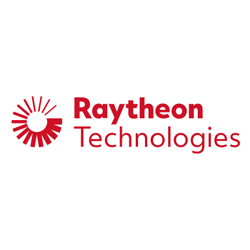Is Quantum-Accelerated Computation the Next Big Disruption?
- by 7wData

Many people are looking to quantum computing as the next revolutionary technology. Nature analyzed that in 2017 and 2018 alone, more than $450 million of private funding was poured into the quantum industry. Even the classical finance community starts to smell an opportunity. Xavier Rolet, the former CEO of the London Stock Exchange and well-respected industry veteran, told The Quantum Daily that he considers such investments a solid bet on the future and believes in the transformational change of quantum computers.
If not all, the exciting topic made its way to a more mainstream audience. Even the tabloids have been writing extensively and with very catchy headlines about a Nature article published in 2019. Researchers at Google announced that they achieved what is called quantum supremacy. On their quantum processor named Sycamore (see Fig. 1), they ran some calculations within 200 seconds that would have taken the world’s most powerful (classical) supercomputer 10,000 years — at least they claim. It has to be added that the setup was very specific and the results are heavily debated by competitor IBM. But certainly, the expectation towards the field has been starting to skyrocket.
As smart and quirky physicists move towards the field of quantum computation, build hyped startups and get huge funding, it is very interesting to follow this space. Will we have the chance to see disruptive innovation live and in action?
Clayton Christensen’s great book The Innovator’s Dilemmahas become standard literature for business students and startup founders all over the world. He describes how disruptive technologies,a now widely used term coined by him in 1995, has impacted the development of modern computer architectures. The success story of the graphical processing unit (GPU) follows exactly Christensen’s ideas and may in some sense be a good analogy to what we are seeing now in the field of quantum computing.
I first heard of GPUs on the schoolyard. The main fight between us teenagers was between believers in 3dfx’s Voodoo or Nvidia’s GeForce graphic card. It enabled us to play what we thought to be extremely realistic games like Quake (follow this link to play the browser version and you will understand our excitement). It is quite obvious, that the gaming interests of me and my schoolmates were something of a niche market and not considered good business back in the days, especially compared to highly-profitable workstations.
Eventually, however, the gaming market took off and grew to $152 billion in 2019. With the growing market, so grew the research budget for GPUs. They became the de-facto standard everywhere and people started to realize the benefits of the parallel computing powers at their hand. In 2017, Nvidia introduced its CUDA platform allowing easy access to the GPU for developers. Being very useful for heavy numerical integrations, it became a major hit in the physics research community and very widely adopted.
Graphics processing does require the ability to solve a math problem known as a floating-point operation or a FLOP. This is something you probably will have heard of when people brag about their supercomputers. It is no coincidence that in 2010, the Pentagon eventually connected 1760 Playstation 3’s to build a supercomputer called Condor Cluster.
[Social9_Share class=”s9-widget-wrapper”]
Upcoming Events
Evolving Your Data Architecture for Trustworthy Generative AI
18 April 2024
5 PM CET – 6 PM CET
Read MoreShift Difficult Problems Left with Graph Analysis on Streaming Data
29 April 2024
12 PM ET – 1 PM ET
Read More




